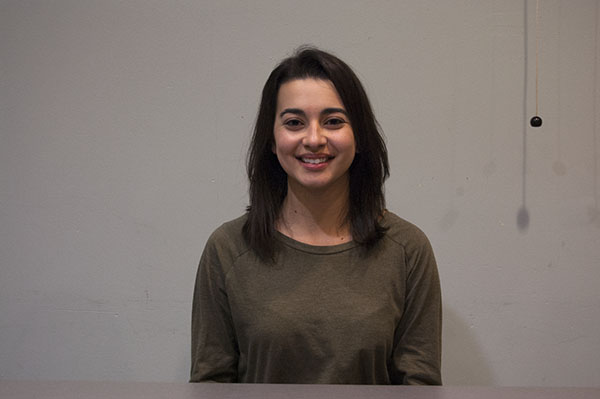

Film buffs with fervor for social activism now have the chance to explore both passions in one of SUNY New Paltz’s recently revived clubs, React to Film.
React to Film is a national non-profit organization that hosts pre-theatrical screenings of “the best issue-based films” to start a dialogue among young people, usually high school and college students, according to the official website.
React to Film’s ultimate goal is to enact social change on a local and global level. New Paltz’s chapter of the club intentions are no different, former React to Film intern Samantha Morello said.
“React to Film is important because not only are these documentaries informing students about issues that they may have otherwise not heard about, they are also learning that change is possible,” Morello, a fourth-year media production major, said. “They emphasize that not only is change possible, but students can be the ones to enact this change.”
The SUNY New Paltz chapter of React to Film hosts two film screenings each semester, though this semester there was only one due to the club’s mid-semester kickoff.
Chapter Leader Victoria Arico became involved in the New Paltz chapter after speaking with Director of Educational Programs Dahlia Graham at the SUNY New Paltz internship fair. After a successful application process, Arico was selected to be the chapter leader, bringing back to life a club that screened films semesters ago through an already existing organization.
React to Film began its outreach with SUNY New Paltz as a series of activities housed within SUNY New Paltz’s student media organization, now called the Media and Journalism Society, according to Assistant Professor of Media and Film and Video Studies Minor Chair Gregg Bray.
Bray said they screened multiple films, including “Miss Representation,” which explores the sexist ways women are portrayed in the media and within society, and would create marketing support and assist with screenings.
“Eventually it became clear that the React to Film component of our club had grown in scope,” Bray, also the media and journalism society advisor, said. “And so React to Film branched out on its own as its own student organization.”
Bray said he hasn’t seen much of the club or its screenings since last fall and that for the past few semesters it seems to have been on hiatus, though he is unsure of the reason why.
Former React to Film club member Sasha Ribowsky said the last time the club was active was the fall of 2012 and spring of 2013 and that it gradually became inactive after members who spearheaded events graduated or became too busy to devote the necessary time. She also cited financial reasons.
“It costs a lot of money to screen each film,” Ribowsky, a fourth-year media production and French major, said. “We have to buy the rights from React To Film to screen them, which gets costly.”
Regardless of the reasons the club initially ended its run, Arico said using a universally popular and recognized way to communicate these social issues, film, is one of the most effective approaches to educating the masses.
“For me, when I watch a film, I develop a bond with the characters and am immersed in this other world, almost,” Arico said. “It’s a nice escape from reality. But it’s not real. But you have documentaries where you witness things that are going on and can enter this world but it’s the world we’re living in.”
However, Arico said she likes documentary’s ability to inspire as a medium.
“Don’t get me wrong, the ‘Dark Knight’ is great, ‘The Avengers’ is awesome, but you can’t do anything with it,” Arico said. “With a documentary, you see it and think, ‘Wow, people are really going through this. These are issues that are going on and people need to do something about it.’”
If the opportunity arose, Arico said she’d love to screen a documentary that examines racial issues, in light of the recent racial signage incidents on campus.
On Wednesday, Nov. 20, React to Film screened “How to Make Money Selling Drugs,” a film addressing drug policy, and Arico said it was “a success” and that 15 people attended.
Ultimately, Arico said she hopes students learn of the presence of React to Film and how powerful it can be to enact social change through students.
“You can learn about social movements in all the classes you want, but React to Film allows students to be a part of a movement, even if it’s a social media movement,” Arico said. “I think it’s really important students develop a passion like this.”
